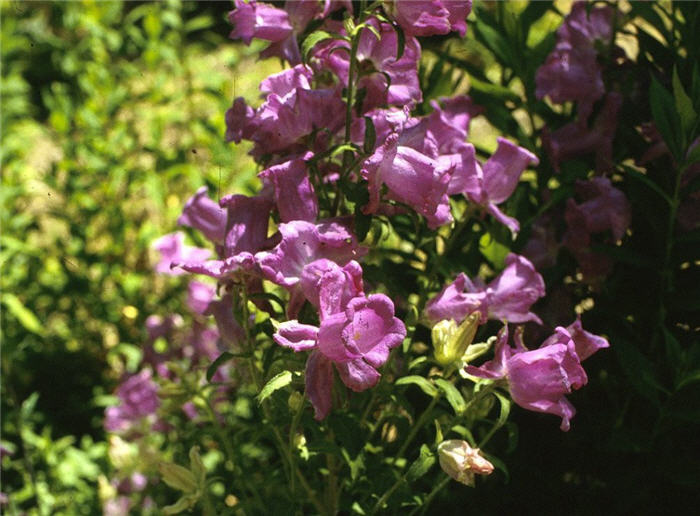| Botanical Name: Campanula medium | |
| Common Name: Canterbury Bells, Cup-And-Saucer |

-
Anatomy
-
Culture
-
Design
Plant Type
Annual, Biennial
Height Range
1-3'
Flower Color
Blue, Lavender, Pink, White
Flower Season
Spring
Leaf Color
Green
Bark Color
n/a
Fruit Color
n/a
Fruit Season
n/a
Sun
Full, Half
Water
Medium
Growth Rate
Moderate
Soil Type
Loam
Soil Condition
Rich, Well-drained, Moist
Soil pH
Acid, Neutral
Adverse Factors
n/a
Design Styles
English Cottage, Formal
Accenting Features
Showy Flowers
Seasonal Interest
Spring
Location Uses
Perennial Border, Raised Planter
Special Uses
Container, Cut Flowers
Attracts Wildlife
n/a
Information by: Stephanie Duer
Photographer: Steve Mullany
Photographer: Steve Mullany
-
Description
-
Notes
Canterbury Bells is a biennial Campanula grown for its stature and and its soft pastel colors. The flowers are bell-shaped, single or double petaled, in shades of blue, pink, or white, depending on the variety. They typically bloom during the cooler part of the season, from mid spring to early summer. Foliage is green. Plant grows about 2 to 3 feet tall and not quite as wide. It may reseed. A lovely cut flower.
Grow in rich soil that is well drained; requires regular, though not frequent watering. Powdery mildew may be a problem if over-head watered or if kept too wet. But back after blooming slows to encourage a second bloom in early fall, though if you let some flowers go to seed you may be rewarded with new plants next season. A biennial, it is sometimes used like an annual and removed at the end of the season.